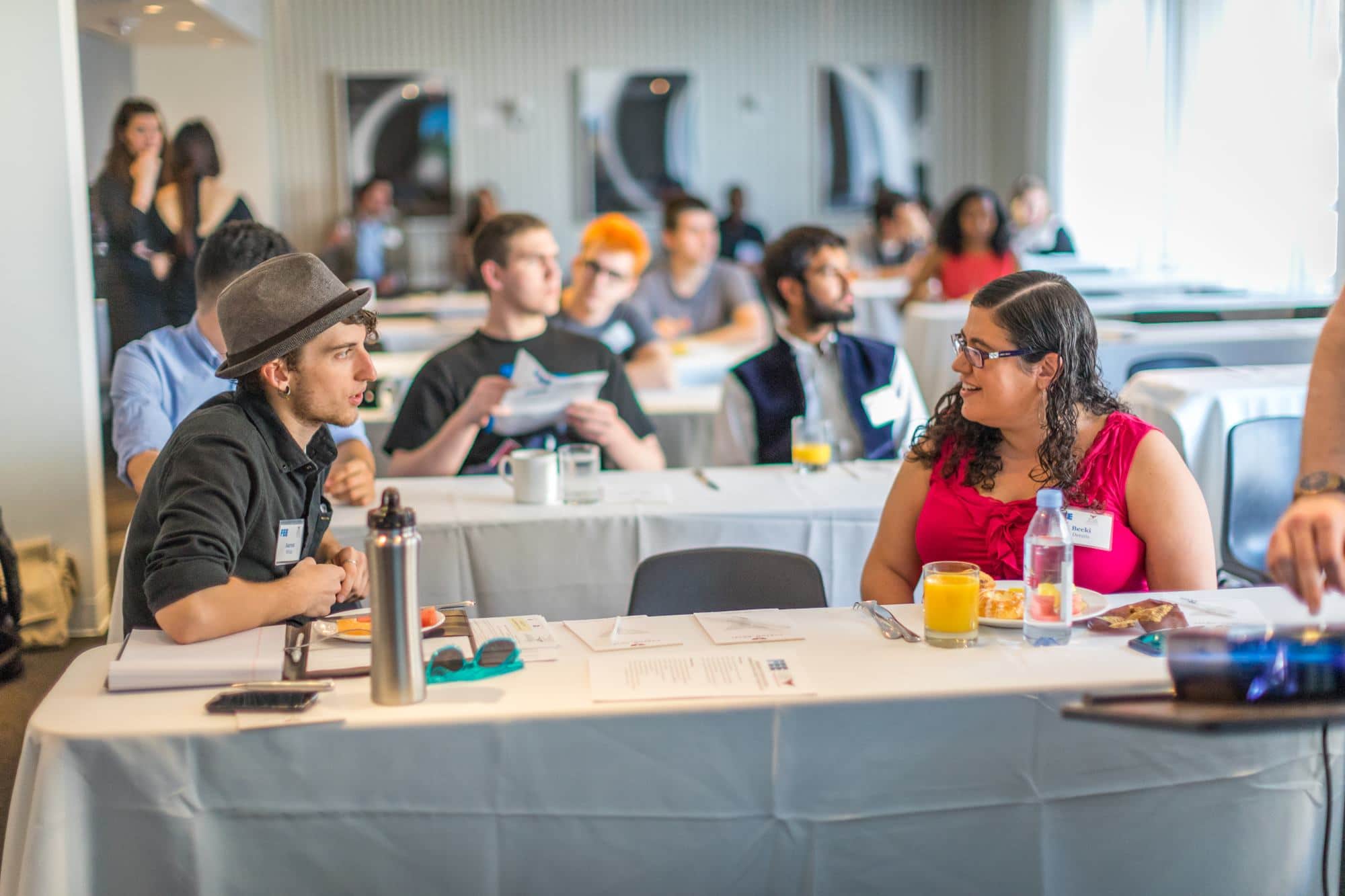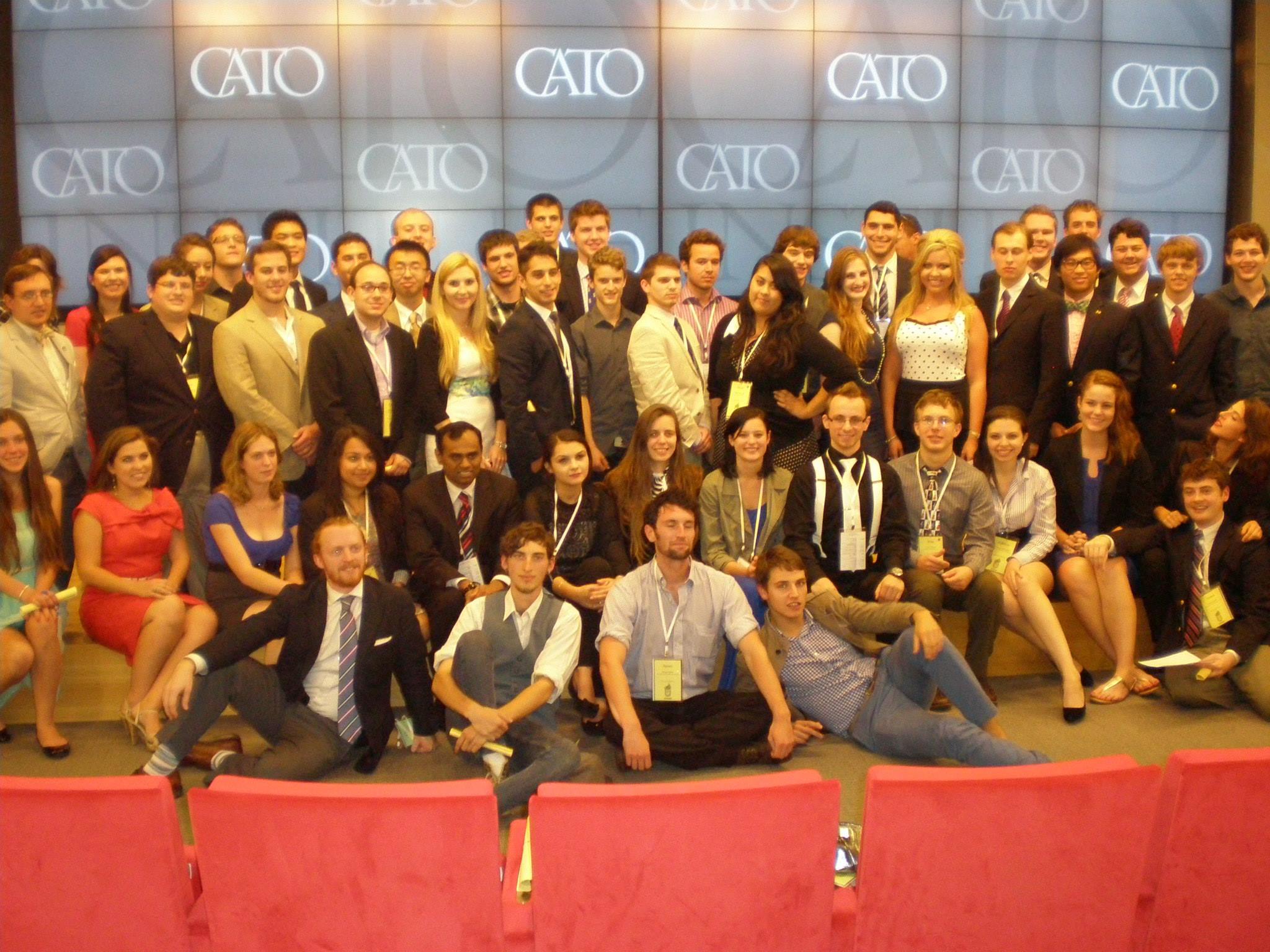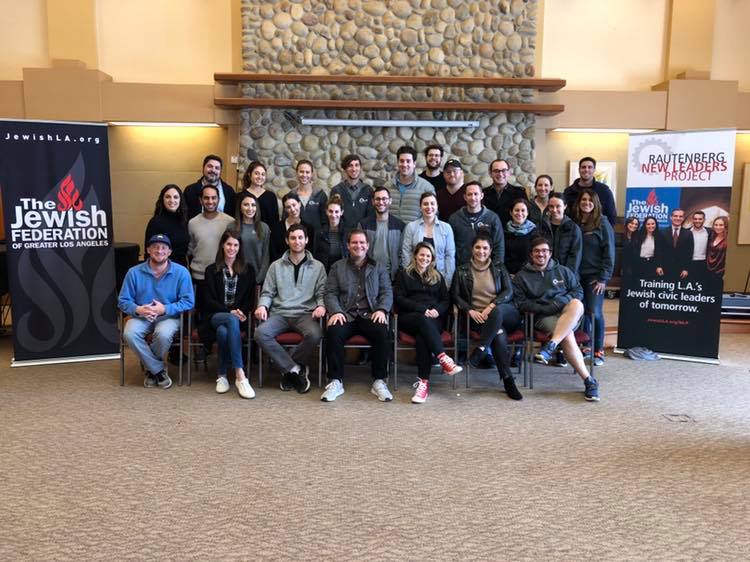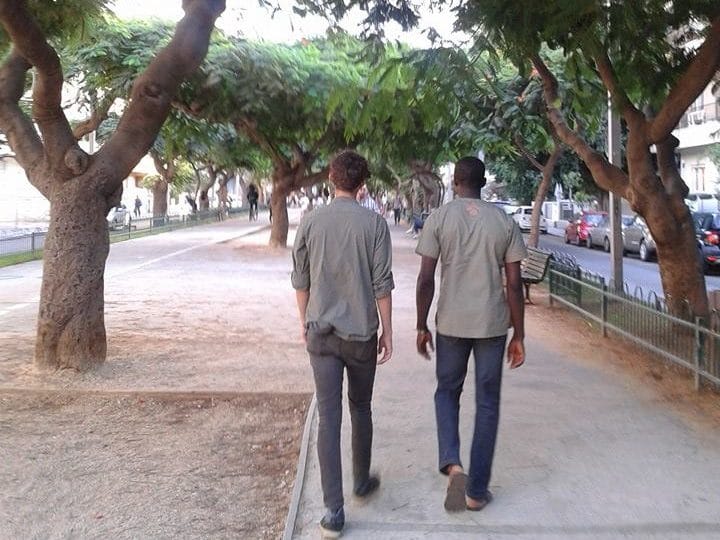
We enjoyed talking with Aaron Lloyd White, who aims to participate in a new fellowship each year. He is an alumnus of a number of diverse fellowship programs in leadership, writing, teaching, and politics. He has participated in the Writing Fellows Program through the America’s Future Foundation, the Rautenberg New Leaders Fellowship, the Masa Israel Teaching Fellowship, and the Jeremiah Fellowship, among many others. He shared with us his perspective on fellowships, how they have helped him in his career, and his advice on applying to fellowship programs.
1. What inspired you to start applying for fellowship programs?
Initially, I began to pursue fellowship programs out of a sense that fellowships alone would make me a respectable person or, at the very least, someone who would be taken seriously. So, I applied to political and professional fellowships designed to advance my career without regard to the actual substance of the programs. In my mind, fellowships, like internships, were stepping stones. Fellowships, however, have a qualitative difference that focuses on a keystone in the program, whether that’s building a specific policy, organizing around a certain key issue, or developing a specific community or network over the course of the fellowship.
What I found in my first fellowship, a college-based program for organizing volunteering at UC Santa Cruz, was a sense of community and the reward of building something together with others. Advancing one’s career is only one part of the fellowship. The people you meet and the relationships you develop can be helpful in building a career, but more importantly, for me at least, is the community that coalesces around them and the mutual aid and support we gain from each other.
Since that initial fellowship program, I have striven to participate in at least one fellowship a year using these opportunities to build my network of contacts, to challenge my thinking at times, and to participate in programs working towards meaningful change and research.

2. How have your fellowships helped you develop your career aspirations?
These fellowships have helped me to develop my career aspirations by completely shifting it – twice. I started working in the corporate world but very quickly found more meaning in the political and policy fellowships I had participated in. This led to an initial career shift to working in policy. I found out through subsequent work that I excelled at writing for development and in support of nonprofits which led to my second career shift, to where I am now.
Today, I lead Development for a mid-size nonprofit and have built a consultancy, largely through my fellowship connections, to assist in writing and fundraising for nonprofits whose mission or work I strongly agree with. If you had asked me if this is what I saw myself doing a decade ago, I would have said no. The fellowships I’ve participated in, namely the Professional Fellowship at NewGrounds: A Muslim-Jewish Partnership for Change and the Jeremiah Fellowship through Bend the Arc were paramount in directing me to where I am today.

3. What have been some of your favorite experiences as a fellow?
I am excited, within reason, by the prospect of being challenged or having my ideas challenged. I think that through meaningful dialogue and personal relationships, we can change the minds of others or, in turn, have our own ideas change. While participating in the Masa Teaching Fellowship, I had many experiences with Israeli children and their families of all political and socio-economic backgrounds. I think my favorite experience was in challenging the way some of the kids I worked with and their families thought and having them challenge me back.
I was welcomed to many weekend dinners with different families offering a unique insight into how different families lived and to see how that shaped their experiences and to some extent their politics. More unique still was being invited to weekend dinners and visits to Palestine, organized by the parents of one of the children I worked with. These experiences helped me to realize just how difficult the approach to peace in the region is and many of the factors that prevent it.
In particular, I will always remember waking to sunrise muezzin’s call to prayer and spending the morning talking to a Palestinian peace activist* about the bottom-up approaches towards effecting change. He described the process of change as beginning with “baby steps, those awkward phases between standing and crawling, the heavy falls, and the satisfaction of looking back and knowing that we moved.”
*I refrain from using his name for his own desire for anonymity.

4. What advice would you give for those who want to become strong applicants to fellowship programs?
Whether it’s for work or for a fellowship that’s more oriented towards social justice and community building, being able to tell your own story or simply learning to tell stories is vital. Storytelling is the key to fundraising, job applications, and college essays, so I’d recommend writing and working on writing as a means of becoming a strong applicant to fellowship programs. Organizations want effective storytellers because it helps raise their public profile, sheds a spotlight on their work or a particular part of it, and inspires others.
The other advice I have is not to lose hope or give up. If you are rejected from a fellowship the first year, reach out to the sponsoring organization and ask how to strengthen your application for the following year. For instance, I was rejected from the Jewish Federation of Greater Los Angeles’s Rautenberg New Leaders’ Program two years in a row before being accepted. Each time I was rejected I reached out to the managing team to find out what was missing or what I could improve upon. In this way, I built a relationship with the program staff and was able to get into the program.
Aaron Lloyd White is a graduate from Tel Aviv University’s Porter School of Environmental Studies and the University of California – Santa Cruz. He currently works in Development and Policy Analysis. His work has been published in The Sacramento Bee, The Orange County Register, and the Oakland Tribune, among other publications.
Interested in applying? Bookmark the Writing Fellows Program or the Jeremiah Fellowship to your ProFellow account.
© Victoria Johnson 2020, all rights reserved.